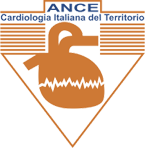Abstract
Background We recently reported that normal aldosterone levels are associated with cardiovascular, renal, and metabolic disease in a sample of the US general community (Visit 1). For the current analyses we used the same cohort in a new 4‐year follow‐up study (Visit 2).
Methods and Results We measured aldosterone at Visit 1 and analyzed its predictive role for new diseases at Visit 2 (n=1140). We measured aldosterone at Visit 2 and investigated its associations with disease at Visit 2 (n=1368). We analyzed aldosterone continuously and we also dichotomized the variable as whether subjects were in the third tertile versus second and first tertiles. As continuous variable at Visit 1, aldosterone predicted new onset hypertension (HTN) (OR=1.36, CI=1.13–1.63, P=0.001), central obesity (OR=1.36, CI=1.07–1.73, P=0.011), and use of lipid‐lowering drugs (OR=1.25, CI=1.05–1.48, P=0.012) at Visit 2, after adjustment for age, sex, and body mass index. When in the third tertile (8.5–88.6 ng/dL), aldosterone predicted type 2 diabetes (T2DM, OR=1.96, CI=1.03–3.70, P=0.039). At Visit 2, aldosterone remained associated with HTN, obesity, and chronic kidney disease (CKD), as reported for Visit 1. However, aldosterone was not associated with heart failure (HF) at Visit 1 and 2, nor was aldosterone a predictor of HF between visits.
Conclusions Aldosterone predicts new HTN, central obesity, T2DM, and use of lipid‐lowering drugs in the general community and remains associated with HTN, obesity, and CKD over 4 years. Aldosterone is not associated nor predicts HF. Further studies are warranted to evaluate aldosterone as therapeutic target in the general community.
Journal of the American Heart Association
http://dx.doi.org/10.1161/JAHA.115.002505
A cura di Calogero Calcullo
